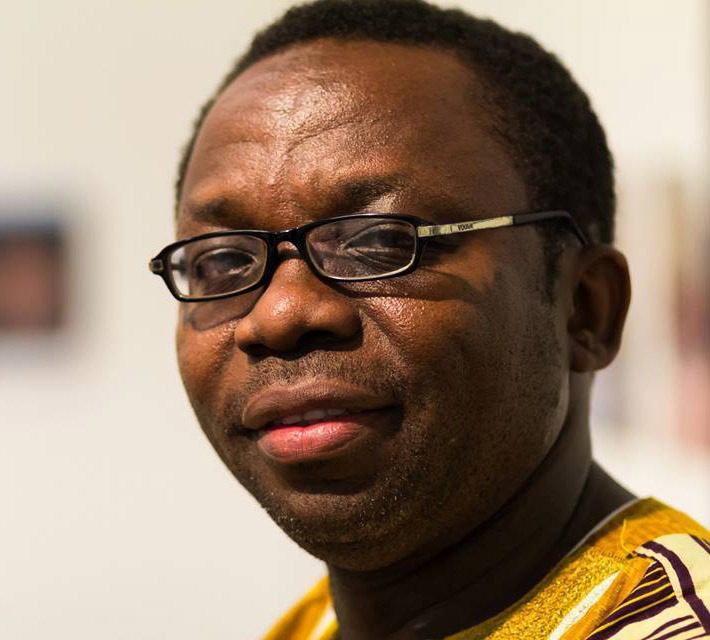Global Issues
Indian Gods and Technologization of Transcendental Thinking: Lessons for Africa -By Leo Igwe
Magical thinking and god ideas can be mechanized to provide cures for diseases, alleviate suffering, combat poverty and improve human welfare and happiness. For instance, Africans should launch technological programs and expeditions to understand the sun, named after the sun gods, Sango or Amadioha. Why not? They can launch technological crafts to study and explore the underwater named after mamiwota or Osun, other sea gods, goddesses, and spirits. Such technologization would, while codifying religious mysteries, would spur development and provide critical answers and solutions to some of the continent’s persistent problems and challenges.

Africans need to draw a lesson from Indians whose space technology project is making giant strides despite pervasive belief in gods and deities. Many Africans pride themselves as god believers; they make it seem as if there is something special, or exceptional about African gods or belief in African deities. There isn’t. A popular Nigerian pastor once remarked, “…though Africa might not have the technology and health infrastructure like developed nations, the black continent has God”. This remark implies that God may be doing for Africans what technology is doing for developed nations. Does it? Gods are creations that humans use to make sense of what they do not know or understand. Like Indians, Africans should strive and harness the divine imaginaries that resonate across cultures. They should explore ways of technologizing magical and mysterious thoughts.
As has been reported, India’s first solar observation mission has arrived at its destination. The arrival is another landmark in India’s space program. According to the country’s space agency, the spacecraft has been placed in a spot from where it would continuously watch and help in studying the sun, gathering information about the solar system. Interestingly, this first space-based mission to study the sun was named after the Hindu Sun God, Aditya. The mission is called Aditya-L1. So, the space mission has a religious ornament. And Indians are proud, excited and inspired by the mission.
It is pertinent to ask: has this project anything to with God, the Sun God, or religion as popularly believed in India? Yes and No. Yes, because Aditya is the icon and metaphor for the mysteries and inscrutabilities Indians associate with the sun. But this space mission has shown how dynamic this notion of god is. Unlike many across Africa, Indians have not allowed themselves to be imprisoned or held captive by their belief in the Sun God. They have not allowed the mysteries linked to the Sun God to paralyze and inhibit their explorative and investigative ingenuity. Indians have not resigned to praying, worshipping and sacrificing animals or maybe humans to the so-called Sun God and relying on self-styled mouthpieces or self-anointed spokespersons to know what’s going on in the solar system.
Instead, they have approached the solar system with curiosity and inquisitiveness. They have studied, researched, worked hard, and produced a spacecraft that is now helping to understand and unravel those mysteries that have hitherto been invested in a deity. Africans need to pay close attention to this way of understanding and exploring the supposed reserves of gods and deities. African countries should learn how societies like India are divinizing technology and technologizing divinities. They should borrow a leaf from the Indian nation and begin to magicalize technology and technologize magic. Simply put, Africans should begin using technologies, not rituals, to manage, exploit and manipulate forces in the universe. As noted in his 1962 book, Profiles of the Future: An Inquiry into the Limits of the Possible, Arthur C. Clarke said: “Any sufficiently advanced technology is indistinguishable from magic”. This statement is loaded with profound wisdom. Twenty first century Africans should try and creatively fuse technology and magic, and make them to indistinguishably work for the continent.
Africans should move beyond romanticising magic and witchcraft, local gods and deities, and begin to forge innovative techniques to deliver, transform, and translate these myths and imaginaries into technological missions and expeditions that unlock the mysteries of the universe. Magical thinking and god ideas can be mechanized to provide cures for diseases, alleviate suffering, combat poverty and improve human welfare and happiness. For instance, Africans should launch technological programs and expeditions to understand the sun, named after the sun gods, Sango or Amadioha. Why not? They can launch technological crafts to study and explore the underwater named after mamiwota or Osun, other sea gods, goddesses, and spirits. Such technologization would, while codifying religious mysteries, would spur development and provide critical answers and solutions to some of the continent’s persistent problems and challenges.
Indians, like Africans, have been noted to be intensely religious and superstitious. They worship so many gods and embark on various bizarre and sometimes harmful religious rituals such as worshipping cows, and snakes, marrying animals and trees, self-flagellation and witch hunting. But Indians have demonstrated that these beliefs do not necessarily inhibit scientific development or hamper technological progress. They have shown that magical thinking and divine icons can be deployed to inspire and realize giant technological feats.
A lesson for Africans!
Leo Igwe holds a doctoral degree in religious studies and has a research interest in religion and transhumanism

















